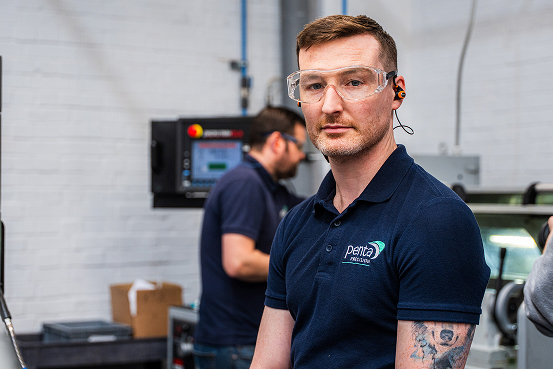 Contact us
Contact us7075 is a high-strength aluminium alloy developed in the 1930s to meet the demand for lightweight structural materials in aircraft manufacturing. Today, it remains one of the strongest commercially available aluminium grades, with zinc as its primary alloying element. The aerospace-approved equivalent in the UK is L95.
7075 is widely used in high-performance applications where strength and fatigue resistance are critical, and where corrosion resistance is a secondary consideration. L95 is commonly specified for aerospace, defence, and nuclear sectors where components operate under high stress.
7075 can be heat treated, annealed, and aged. It is not ideal for anodising and may produce a yellowish tint when clear anodised.
Here is a summary of the available temper treatments:
See our Finishing Processes page for further information on services that we can facilitate.
Stock sizes will vary depending on the supplier.
7075 plate is readily available in thickness ranging from 6mm - 150mm in most common metric and imperial sizes. Plate is subject to a cutting tolerance which can be up to +/- 8mm.
7075T6 bar is readily available in metric and imperial diameters ranging from 6mm - 260mm.
Please note we do not supply stock material, the information provided is purely for design and research purposes.
The mechanical properties of aluminium 7075 depend greatly on the temper. Here are the values for 0 and T6 tempers.
Due to the relative higher cost of 7075 aluminium, it is generally only used where its superior strength is required.
Should the extra strength not be critical, aluminium 6082 which has less strength but superior corrosion resistance may be a better option.
Please feel free to get in touch with our engineering team who can advise on your project.


7075 aluminium is used for high-strength, precision-machined components where performance is critical. It's commonly specified for aerospace, motorsport, and structural applications due to its excellent strength-to-weight ratio and fatigue resistance.
7075 is harder than many other aluminium grades, which can increase tool wear, but it still machines well with the right setup. When properly managed, it allows for accurate, high-strength parts with tight tolerances.
T6 and T651 are the most commonly machined tempers of 7075 aluminium. These tempers offer maximum strength and dimensional stability, making them ideal for critical applications.
Yes, but with limitations. 7075 can be anodised, though the finish may not be as uniform or corrosion-resistant as on other grades like 6082. Hard anodising is often used to enhance wear resistance for functional parts.